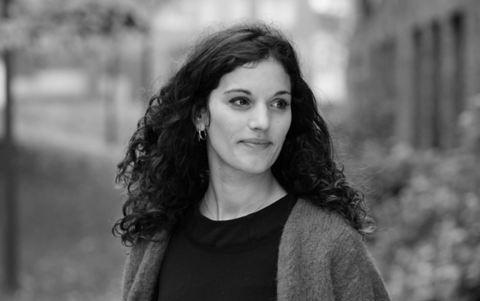
Emma Benestan’s second feature Animale, the closing film of Cannes’ Critics’ Week, is set in the bull racing scene of the Camargue region of southern France. It stars Oulaya Amamra as a woman making her way in a male-dominated world amid a slew of brutal murders.
The director wanted to anchor the film in its setting. “Camargue inspires [thoughts of] Westerns,” Benestan explains. “I wanted to bring something fantastical, mythological and a bit of horror too.
“Genre is political. Through horror, we can get political messages across.”
Animale is Benestan’s follow-up to 2021 romantic comedy Hard Shell, Soft Shell and Benestan says the two films “tell the same story, but differently. In Hard Shell, Soft Shell, I question masculinity by saying a man can be fragile and in Animale I question female empowerment. The bull is typically an animal associated with the masculine, so I wanted to switch things up and make it about a woman.”
She aimed for a twist on the revenge thriller. “It is a way of digging into questions I ask as a young woman in the world myself,” she explains. “Cinema is about asking questions and I want audiences to ask questions about the violence we experience.”
Benestan, who is French-Algerian, wrote the role specifically for lead actress Amrama, who broke out in Houda Benyamina’s Divines, a role for which she won a Cesar and Lumiere award. She also starred in Benestan’s Hard Shell, Soft Shell. All of the other actors in Animale are non-professionals.
“They needed to have authentic accents,” Benestan explain and, more importantly, were trained in handling the bulls omnipresent in the film.
“There are a lot of scenes with real bulls and we didn’t want stunt doubles. There is no such thing as a ‘bull tamer’ We just did a sort of casting for bulls who would be most gentle and wouldn’t attack while we were shooting.”
While the film was scripted, “There was a bit of spontaneity involved,” says Benestan. “We tried to plan our shots, but also had to follow the natural rhythm of the bulls. Sometimes we waited for hours for something to happen. In cinema, we’re always trying to dominate reality and here we had to be patient and really follow the rhythm of nature. They say Camargue has more animals than humans, which really set the mood for the film.”
Benestan studied at France’s prestigious film school La Fémis and got her start working with Abdelletif Kechiche as an editor on films including the Palme d’Or-winning Blue Is The Warmest Color.
He influences for Animale included Buffy the Vampire Slayer. “In horror films, the woman is usually screaming because she’s scared. In Animale, she unleashes a primal scream full of power,” Benestan explains.
Unlike the traditional Hollywood Western, in Benestan’s view of the world, the good guys are not vying against the bad guys – “the world isn’t binary. Ambiguity and ambivalence are at the heart of the film.”
Animale is produced by Julie Billy and Naomi Denamur of June Films and Film Constellation is handling international sales.















![[L-R]: Amanda Villavieja, Laia Casanovas, Yasmina Praderas](https://d1nslcd7m2225b.cloudfront.net/Pictures/274x183/6/4/1/1471641_pxl_20251224_103354743_618426_crop.jpg)









No comments yet